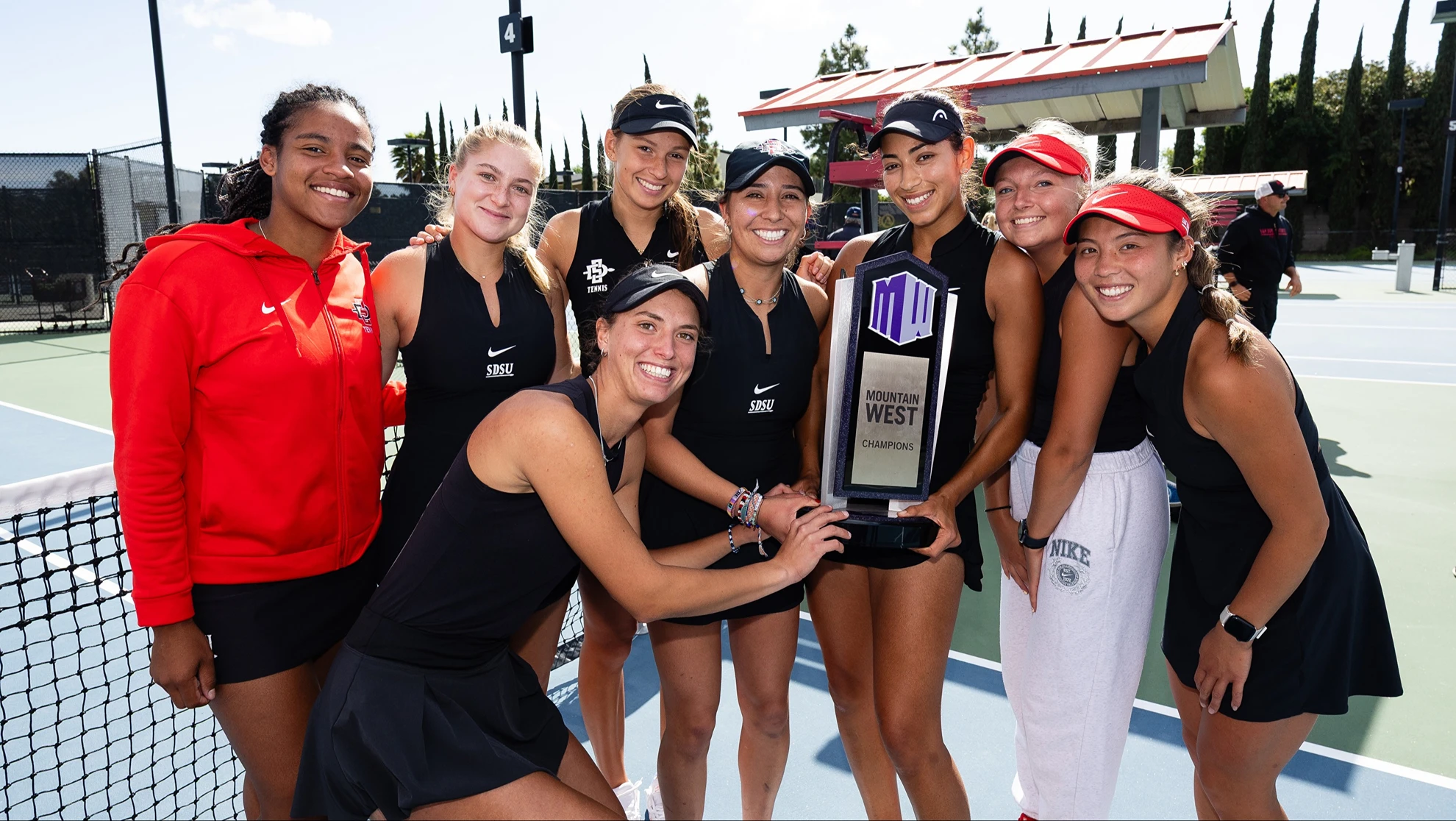SDSU Deepens Ties to Oaxaca
A presidential delegation celebrated an MOU to formalize a partnership with La Universidad La Salle Oaxaca to encourage future collaborative research, conferences and more.

From orange and teal to purple and deep yellow, the southern Mexican state of Oaxaca is renowned for the vibrant colors of its textiles and historic architecture. Lately, it seems a bit more red and black is being added to the local palette.
Over spring break, a delegation of San Diego State University administrators and faculty and California elected officials traveled to Oaxaca to preside over the signing of a memorandum of understanding between SDSU and La Universidad La Salle Oaxaca.
The agreement opens the door to future partnerships with La Salle Oaxaca, a private university in the city of Santa Cruz Xoxocotlán. Possibilities include joint programs, exchange and visiting scholar programs, research collaborations, conferences and more.
“Oaxaca is a bright example of how we can create a future where diverse communities thrive, and progress coexists with indigenous heritage,” said Cristina Alfaro, associate vice president of international affairs, who led the signing of the MOU on behalf of President Adela de la Torre.
“The University of La Salle Rector Salgado Fernández graciously opened the university doors and is eager to deepen our collaboration,” Alfaro said. “And, our delegation of California’s policy makers was able to experience first hand how SDSU's partnership with the vibrant community of Oaxaca highlights the power of honoring and preserving cultural and linguistic assets, transcending borders to build mutual respect, trust, learning and research opportunities.”
Growing Footprint
This is SDSU’s second delegation to Oaxaca in as many years, underscoring the university’s commitment to expanding binational partnership in the region. In May 2022, de la Torre led a group of SDSU leaders and state lawmakers to Oaxaca to celebrate the grand opening of the SDSU Center for Mesoamerican Studies, which encourages transborder diplomacy, cross-disciplinary relationships and binational cooperation.
The region is particularly of interest to SDSU because of the high number of Oaxacans who reside in Southern California and represent the largest indigenous population in the state of Oaxaca.
Elected officials present for this year’s visit included California State Assembly members David Alvarez, Eduardo Garcia, Chris Ward and Kevin McCarty, as well as Juan Carlos Torres, a staff member for Assembly Speaker Anthony Rendon.
Joining Alfaro from SDSU were Ana Molina Rodriguez, deputy chief of staff to the president; Diana Lara, community relations manager; Ramona Pérez, professor of anthropology and director of the Center for Latin American Studies; John Crockett, associate vice president of research advancement; Lluvia Flores-Renteria, associate professor of biology; and Marva Cappello, professor in teacher education and director of SDSU's Joint Ph.D. Program in Education with Claremont Graduate University.
SDSU-La Salle Connection
Last May, Cappello, in collaboration with the International Affairs Office, led a group of nine doctoral students to Oaxaca for a binational seminar exploring topics related to social justice in education. It was the culminating experience of a semester-long course developed in partnership with the University of La Salle Oaxaca.
The success of that program, which Cappello plans to reprise next academic year, helped lay the groundwork for the MOU.
“This partnership has been significant in so many ways,” Cappello said. “First, the opportunity to collaborate with our peers on the other side of the border has been amazing. We conducted a COIL (Collaborative Online International Learning) class last year with shared topics. For example, one was women in educational leadership, and (a student) in Oaxaca presented and one of our doctoral students presented on the same topic. It was so valuable having a truly international perspective.
“We work super well together and there are lots of potential ways that we could increase and deepen our partnership.”



